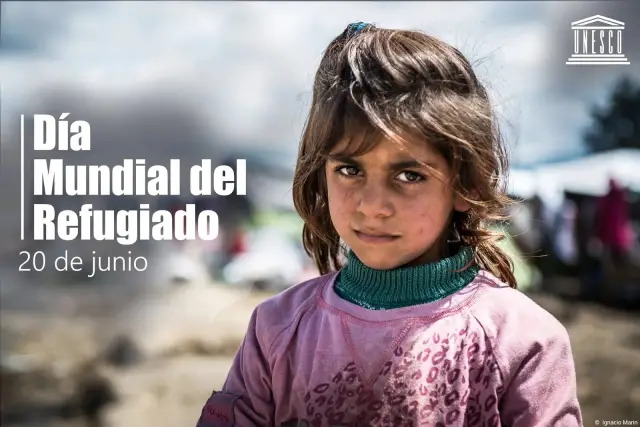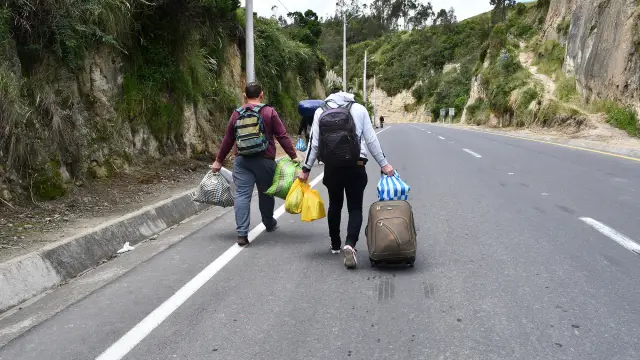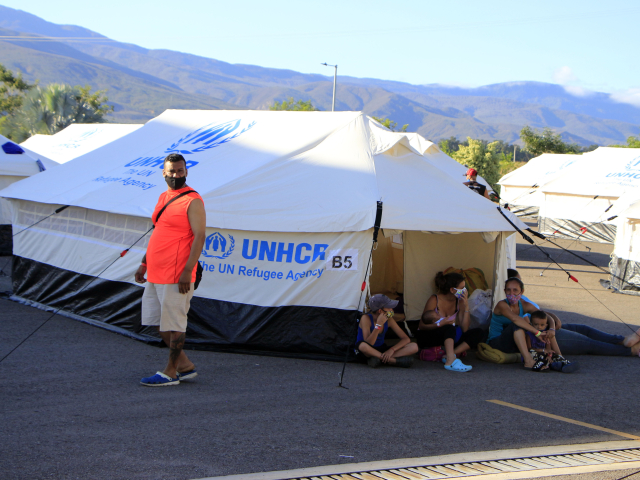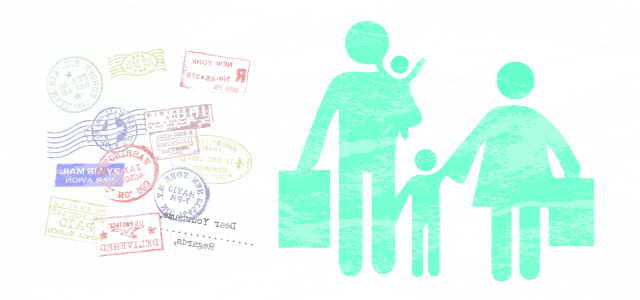World Refugee Day is commemorated every June 20th to recognize and highlight the courage and resilience of millions of people who have been forced to leave their homes. Whether due to armed conflict, widespread violence, political persecution, or natural disasters, the number of forcibly displaced people has grown alarmingly in the last decade. Mexico, due to its strategic geographic location between Central America and the United States, has become both a transit country and a destination for thousands of people seeking international protection.
In this context, understanding World Refugee Day in Mexico involves analyzing the factors that cause displacement, the conditions in which refugees live, and the care policies implemented in the country. Despite certain legislative advances and the commitment of various government institutions and civil society organizations, multiple challenges persist that hinder access to fundamental rights. This date invites us not only to reflect, but also to act with empathy, responsibility, and solidarity.
What is World Refugee Day?
World Refugee Day was proclaimed by the United Nations General Assembly in 2000 , in commemoration of the 50th anniversary of the 1951 Convention relating to the Status of Refugees. Since then, every June 20th has become an international day to pay tribute to those who have been forced to leave everything they know behind in order to survive. This date not only celebrates their resilience but also urgently calls on the international community to protect their rights.
Importance of commemoration
This day plays a vital role in building a culture of empathy and commitment to human rights. World Refugee Day promotes understanding of the complex realities faced by displaced persons, as well as the need to strengthen asylum and protection mechanisms. In addition:
It encourages the creation of inclusive and effective public policies.
It highlights the contribution refugees make to the communities that host them.
Strengthens compliance with international humanitarian law.
It encourages educational and cultural campaigns to counter discrimination.

Mexico as a receiving and transit country
Key geography for displacement
Mexico occupies a strategic geographic position on the migration route connecting Central America with the United States. This location makes it a country with a dual role: a transit point for those seeking to reach the north and a destination country for those who decide to settle here after fleeing extreme situations in their countries of origin. The main causes of displacement affecting migrants from countries such as Honduras, El Salvador, Guatemala, Haiti, and Venezuela include gang violence, political persecution, extreme poverty, natural disasters, and institutional collapse.
Recent refugee statistics in Mexico
Over the past five years, Mexico has experienced an exponential increase in asylum applications. According to data from the Mexican Commission for Refugee Assistance (COMAR), the country has received tens of thousands of applications annually, exceeding its operational capacity in many regions. The figures reflect a growing and urgent phenomenon:
| Year | Asylum Applications | Main countries of origin |
|---|---|---|
| 2021 | 131,448 | Haiti, Honduras, Cuba |
| 2022 | 118,478 | Honduras, Haiti, Venezuela |
| 2023 | 140,982 | Venezuela, Haiti, Guatemala |
These numbers demonstrate a clear trend: Mexico has ceased to be merely a transit route and has become a destination country, which requires strengthening its asylum and comprehensive protection system.

Rights and challenges faced by refugees in Mexico
Access to fundamental rights
The Mexican legal framework recognizes refugees as subjects of rights, including access to healthcare, education, employment, and housing. However, in practice, numerous obstacles hinder their full inclusion.
Right to identity and documentation
One of the main problems is the lack of official documentation upon arrival in the country. Many refugees lack birth certificates or passports, which complicates their registration in healthcare or education systems. Although COMAR issues certificates of processing and recognition resolutions, the process can take several months or even years.
Education and health
Although they have the right to access basic services, many refugees face language barriers, lack of resources, and lack of knowledge of procedures. In rural or border areas, where services are limited even for the local population, conditions are even more severe for new arrivals. Refugee children and adolescents are often excluded from the education system, which directly impacts their development and future.
Discrimination and xenophobia
In various regions of the country, refugees face rejection from host communities. Misinformation, stigma, and mistrust fuel xenophobia. These factors complicate their integration and can lead to marginalization or even violence.
Security and legal protection
Refugees, especially those without official recognition, may be victims of extortion, police abuse, or violence by criminal groups. The lack of effective protection, despite existing laws, poses a serious risk to these already vulnerable people. The uneven implementation of asylum policies and the lack of inter-agency coordination are challenges that urgently need to be addressed.

Advances and public policies in Mexico
The role of COMAR and UNHCR
COMAR, a subsidiary of the Ministry of the Interior, is the primary agency responsible for receiving and processing asylum applications. In coordination with UNHCR (the UN Refugee Agency), it has expanded its presence in key states such as Chiapas, Tabasco, and Mexico City. These institutions are working to ensure a fair and transparent process, although they face budgetary and operational constraints.
Integration and employment programs
In recent years, various integration programs have shown positive results. Some private companies have signed agreements with UNHCR to hire refugees. Organizations such as Casa Refugiados and Sin Fronteras IAP also provide support in job searches, immigration regularization, legal counseling, and psychological assistance. These programs help refugees integrate into the country's social and economic life with dignity.
The role of civil society and the media
The work of civil society is essential to fill the gaps in the State. Various Mexican and foreign NGOs provide services ranging from temporary housing to job training and legal assistance. At the same time, the media has begun to play an important role in raising awareness of the refugee crisis, although negative stereotypes and sensationalist approaches persist and must be eradicated.
How can you support?
Solidarity begins with small actions. Here are some ways you can contribute:
Get your information from reliable sources and share it.
Donate to organizations that work with refugees.
Volunteer at shelters or care centers.
Educate others about the importance of inclusion and human rights.
Report acts of xenophobia or discrimination in your environment.
Frequently Asked Questions (FAQ)
What is the difference between a refugee and a migrant?
A refugee flees for reasons of force majeure, such as persecution or armed conflict. A migrant may move voluntarily for economic, family, or educational reasons.
Does Mexico grant asylum easily?
The procedure is regulated, but it's not agile. It can take months and involves paperwork that many fail to complete due to lack of resources or information.
Can a refugee work legally in Mexico?
Yes, once you are recognized as a refugee, you have the right to formal employment and to receive a CURP for official procedures.
What organizations help refugees in Mexico?
Among the main ones are COMAR, UNHCR, Sin Fronteras IAP, FM4 Paso Libre and Casa Refugiados.
What happens if my asylum application is denied?
The applicant can appeal. If legal options are exhausted, the person could remain in an irregular immigration status, which exposes them to deportation.
A call to empathy and action
World Refugee Day invites us to look beyond our physical and emotional borders. Every refugee story is a story of resilience, of hope in the midst of displacement. Mexico faces a great responsibility as a host nation, but it also has the opportunity to demonstrate to the world its capacity for humanitarian response. Acting with empathy is not only a moral duty, but an investment in a more just and equitable future. Today more than ever, showing solidarity makes a difference.
